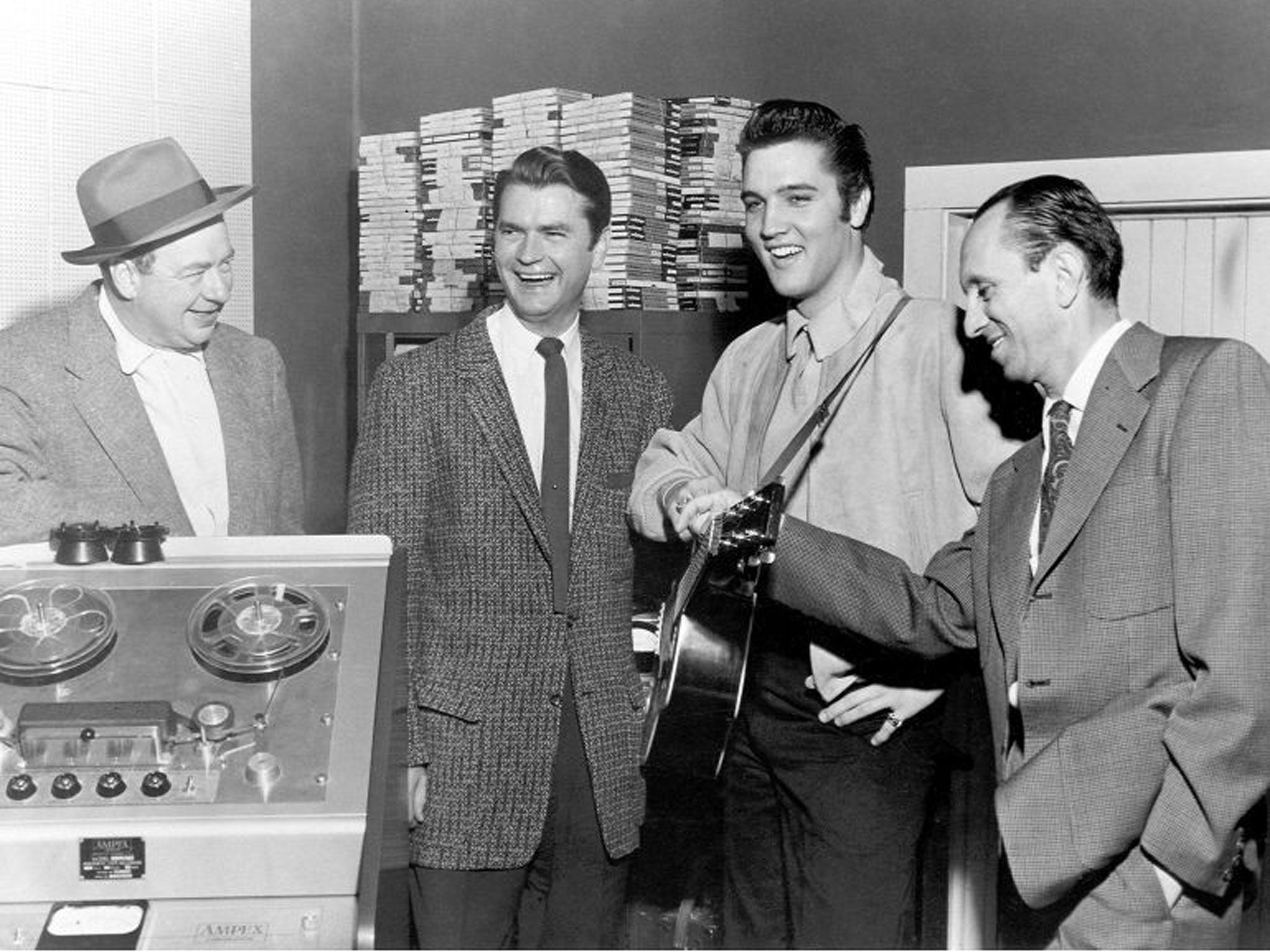Sam Phillips: The real king of rock'n'roll
Phillips discovered and recorded Elvis Presley. And, says John Clarke, he left a huge legacy of other recordings

Your support helps us to tell the story
This election is still a dead heat, according to most polls. In a fight with such wafer-thin margins, we need reporters on the ground talking to the people Trump and Harris are courting. Your support allows us to keep sending journalists to the story.
The Independent is trusted by 27 million Americans from across the entire political spectrum every month. Unlike many other quality news outlets, we choose not to lock you out of our reporting and analysis with paywalls. But quality journalism must still be paid for.
Help us keep bring these critical stories to light. Your support makes all the difference.
Ike Turner was a young man in a hurry. In March 1951, the 19-year-old blues guitarist, pianist and bandleader was on his way with his band to the studio recently opened by Sam Phillips in Memphis, where they cut a driving, forceful tune called “Rocket 88”. Years later, musicologists would call this two minutes and 47 seconds of jumping R'n'B the world's first rock'n'roll record. Phillips agreed. “You're damn right it was the first rock'n'roll record, but don't ask me what was going on there even though I created the damn thing. It was just a magic elixir that worked.
"But I had to tell Ike Turner: 'As great as you are on piano you can't sing. I had to say: 'Do you have anybody before we close this session that can sing?' He said Jackie Brenston. Jackie sang and that's how 'Rocket 88' came about." The record went on to tear apart the R'n'B charts without troubling the pop charts, for this was true underground music in an era when such raw, black music was rarely heard in a popular music scene dominated by such wholesome stars as Doris Day, Frankie Laine and Guy Mitchell.
Sam Phillips's parents were tenant farmers near Florence, Alabama. Phillips, born in January 1923, was the youngest of eight. "I grew up around the blues of the mid-South and always felt that the people who played this music had not been given the opportunity to reach an audience," he told researcher Martin Hawkins in 1984.
By 1945 he had landed a job at radio station WREC in Memphis. By luck or by chance the right man had come to the right city at exactly the right period of time. The music – its quality and its quantity – made Phillips think. "I may not know much but I do know sound," he said. "And here I am thinking about opening a recording studio for one reason – to record black music." He signed a lease on a studio and opened for business in January 1950.
The music he recorded at the Memphis Recording Service (motto: "We record anything, anywhere, any time") behind the unassuming shop front at 706 Union Avenue was as meticulously recorded as the care Phillips gave to his appearance. And there, on his doorstep, was the talent he needed to record, including Riley Ben King, who adopted the stage name BB King, ,and piano player Roscoe Gordon. And then there was a giant of a man – Howlin' Wolf.
Phillips realised that, rather than supply other labels with his material, he could start his own, which in 1952 he promptly did. He called it Sun – its bright yellow label where the word "Sun" is set over sun-rays and above a crowing rooster was to become one of the most enduring images in the history of rock.
Less enduring was the first release. Sun 174 (why Phillips started the label at this number, no one knows) was a blues by harmonica player Walter Horton and jugband performer Jack Kelly. Still, after that false start there came a flood of high-quality releases by such artists as exuberant radio DJ Rufus Thomas; Willie Nix, "the Memphis Blues Boy"; and one-man band Dr Ross "The Harmonica Boss". Perhaps his strangest signing, but one of his most significant, was a group of black convicts from the Tennessee State Penitentiary who called themselves the Prisonaires. Their "Just Walkin' in the Rain" was a number that Johnny Ray would take to the top of the pop charts.
Unlike other producers and record companies. Phillips also kept all his tapes. Every cough, bum note and failed take was carefully stored away. The greater part of the blues that Phillips recorded lay undiscovered in the archives. For every blues release that made it, there were perhaps 10 or more that didn't. Only now, with box sets, are we realising the scope and scale of Phillips's recordings.
As the 1950s went on, Phillips's love for blues remained, but he'd now discovered a rich vein of country music and it started to play a larger part in his repertoire. He was also dogged by the feeling that, if he found a white boy who could sing the blues, he could crack open the pop market.
And it so happened that a young white truck driver called Elvis Presley stopped by the studio to cut a disc for his mother. He was invited back and, after several false starts that saw him trying to emulate crooner Dean Martin, he began fooling around with an old blues number by Arthur "Big Boy" Crudup called "That's All Right, Mama". Sam had found his man.
'The Sun Blues Box', a 10-CD set covering Sam Phillips's blues recordings, will be released by Bear Family records this month
Join our commenting forum
Join thought-provoking conversations, follow other Independent readers and see their replies
Comments